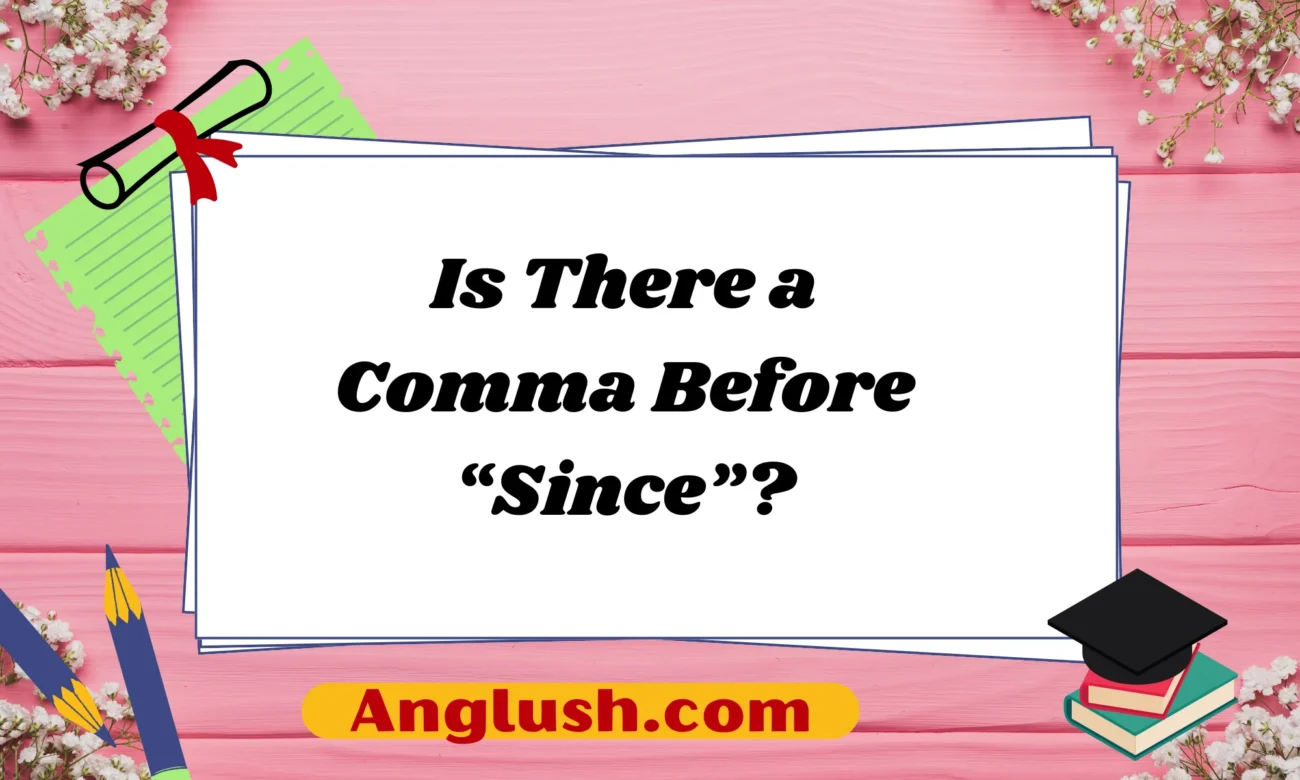Introduction
The use of commas in English can be tricky, especially when it comes to words like “since.” Whether or not you should place a comma before “since” depends on its function within a sentence. “Since” can act as a conjunction or a preposition, and understanding the nuances of its use is essential for clear and effective writing.
In this article, we will explore when a comma is necessary before “since” and when it is not. We’ll provide practical examples, guidelines for different contexts, and tips on how to avoid common punctuation mistakes. Additionally, we’ll cover the nuances of tone and style when using “since” in formal and informal writing.
By the end of this guide, you’ll have a firm grasp of comma placement before “since” and be able to use it confidently in your writing.
When to Use a Comma Before “Since”
A comma before “since” is required when it introduces a dependent clause that provides additional, non-essential information. This often occurs when “since” is used to mean “because.”
1. “Since” as a Conjunction Meaning “Because”
When “since” is used as a conjunction meaning “because,” a comma is often necessary to separate the two independent clauses, especially in formal writing.
Example Sentences:
- She decided to leave early, since the meeting had been canceled.
- I won’t be attending the event, since I have another commitment.
- The store is closed today, since it’s a public holiday.
In these examples, the comma helps to clarify the relationship between the two clauses and improves readability.
However, in informal writing, the comma is sometimes omitted if the sentence is short and clear without it.
Example (No Comma Needed in Informal Use):
- I’m not going since I’m feeling sick.
When Not to Use a Comma Before “Since”
1. “Since” as a Conjunction Indicating Time
When “since” refers to time, indicating that something has happened from a specific point in the past until now, a comma is generally not used.
Example Sentences:
- I have lived in this city since 2010.
- We have been friends since childhood.
- He has been working here since last year.
In these cases, “since” is essential to the meaning of the sentence, and adding a comma would disrupt the natural flow.
How Context Affects Comma Placement
Context plays a key role in determining whether a comma is needed before “since.”
1. Essential vs. Non-Essential Information
- If the clause following “since” provides essential information, do not use a comma.
- If the clause is additional information (not necessary for the main sentence’s meaning), use a comma.
Examples:
- With a comma (non-essential information):
- She left the party early, since she wasn’t feeling well.
(The main idea is that she left the party; the reason is extra information.)
- She left the party early, since she wasn’t feeling well.
- Without a comma (essential information):
- She hasn’t been the same since she lost her job.
(The phrase after “since” is essential to the meaning of the sentence.)
- She hasn’t been the same since she lost her job.
2. Formal vs. Informal Writing
In formal writing, using a comma before “since” when it means “because” is a good practice for clarity. In casual writing, omitting the comma is often acceptable, especially in short sentences.
Examples:
- Formal: I declined the invitation, since I had a prior engagement.
- Informal: I can’t go since I’m busy.
Common Mistakes and How to Avoid Them
1. Using a Comma When “Since” Refers to Time
❌ Incorrect: I have been living here, since 2015.
✅ Correct: I have been living here since 2015.
2. Omitting a Comma When “Since” Means “Because” in Formal Writing
❌ Incorrect: He didn’t attend the meeting since he was sick.
✅ Correct: He didn’t attend the meeting, since he was sick.
3. Overusing Commas in Short, Clear Sentences
❌ Incorrect: I left, since it was late. (Unnecessary comma)
✅ Correct: I left since it was late.
10 Texting Examples for Using “Since” Correctly
Here are 10 examples of how you might use “since” correctly in texting:
- No comma (time reference): Haven’t seen you since last summer!
- With comma (reason): Can’t make it, since I have to work late.
- No comma (essential time info): She’s been acting weird since the breakup.
- With comma (clarifying reason): I’m skipping class, since I’m not feeling well.
- No comma (time): I’ve known him since high school.
- With comma (reason): Not coming, since I’m out of town.
- No comma (time): Haven’t eaten since this morning!
- With comma (reason): Gotta leave early, since I have a meeting.
- No comma (time): They’ve been dating since college.
- With comma (reason): Not going to the party, since I have plans.
Final Tips for Using a Comma Before “Since”
- Use a comma when “since” means “because” in formal writing.
- Avoid a comma when “since” refers to time.
- If the sentence is short and clear, a comma is often unnecessary.
- Consider the context: is the information essential or just extra detail?
By keeping these rules in mind, you can ensure proper comma placement and enhance the clarity of your writing.

